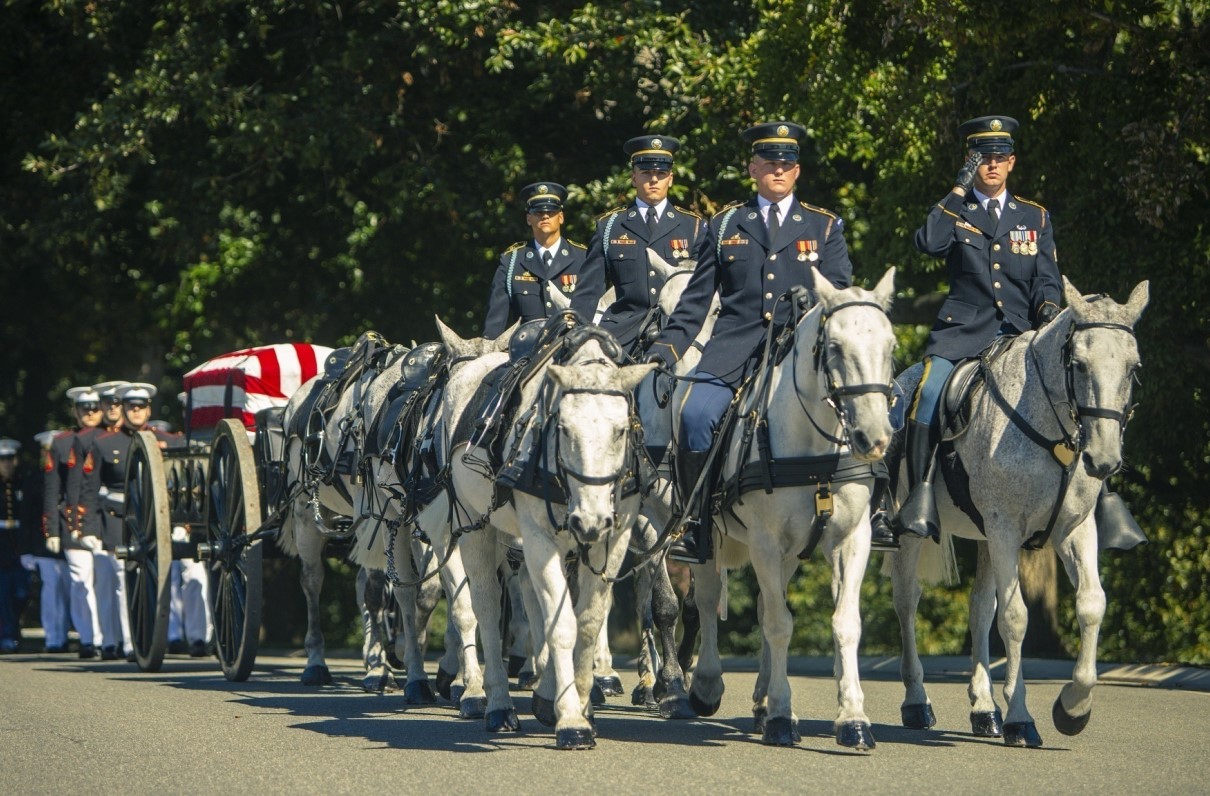Editor’s note: This article by Rebecca Kheel originally appeared on Military.com, a leading source of news for the military and veteran community.
The 13 U.S. service members killed in a suicide bombing in Kabul in August are a step closer to receiving Congress' highest honor after the House approved posthumously awarding them the Congressional Gold Medal.
In a vote Monday evening, the House agreed to grant the Congressional Gold Medal to the 11 Marines, one Navy corpsman and one soldier who were killed in the attack outside the Kabul airport during the military's chaotic evacuation of U.S. citizens and vulnerable Afghans.
"The American servicemembers went above and beyond the call of duty to protect citizens of the United States and our allies to ensure they are brought to safety in an extremely dangerous situation as the Taliban regained control over Afghanistan," the bill to award the medals said.
"The American servicemembers exemplified extreme bravery and valor against armed enemy combatants," it added.
The House bill was introduced by Rep. Lisa McClain, R-Mich., and co-sponsored by 323 lawmakers. The measure was approved by voice vote on Monday, meaning it had near unanimous approval.
[RELATED: Public Can Lay Flowers at Tomb of the Unknown Soldier Next Month]
The Senate still must vote to approve the medals and the president must sign the bill before they are awarded. A companion bill was introduced in the Senate last month by Sens. Steve Daines, R-Mont., and Elizabeth Warren, D-Mass., and has 53 co-sponsors.
The Biden administration has touted its evacuation effort as a success, citing the fact that more than 124,000 people were airlifted out of Afghanistan after Kabul fell to the Taliban.
But the Kabul airport attack, along with images of desperate Afghans clinging to the side of a U.S. transport plane and the fact that hundreds of U.S. citizens and thousands of eligible Afghans were left behind after the military evacuations ended, have fueled criticism of the evacuation from lawmakers in both parties.
On Aug. 26, a suicide bomber detonated an explosive vest outside the Abbey Gate of Hamid Karzai International Airport. The Afghan branch of ISIS, known as ISIS-K, later claimed responsibility for the bombing.
The attack happened while throngs of Afghans desperate to flee Taliban rule crowded outside the airport as the U.S. military rushed to evacuate as many people as possible before President Joe Biden's deadline to fully withdraw from Afghanistan by Aug. 31.
In addition to the 13 U.S. troops killed, an estimated 170 Afghan civilians died.
[RELATED: VA Crisis Line Sees Surge in Veteran Contacts Since Afghanistan Collapse]
The Pentagon identified the service members killed as Navy Corpsman Maxton Soviak, 22; Army Staff Sgt. Ryan Knauss, 23; and Marines Lance Cpl. Kareem Nikoui, 20; Lance Cpl. David Espinoza, 20; Lance Cpl. Rylee McCollum, 20; Lance Cpl. Jared Schmitz, 20; Cpl. Hunter Lopez, 22; Staff Sgt. Taylor Hoover, 31; Cpl. Daegan William-Tyeler Page, 23; Sgt. Nicole Gee, 23; Cpl. Humberto Sanchez, 22; Lance Cpl. Dylan Merola, 20; and Sgt. Johanny Rosario Pichardo, 25.
Days before her death, Gee posted a photo to Instagram of her holding a baby while deployed to Afghanistan with the caption, "I love my job."
McCollum had gotten married earlier this year, and his widow gave birth to their daughter weeks after his death.
Knauss married his high school sweetheart in 2016, the same year he joined the Army, and the couple planned to try to have a child when he returned.
Soviak left behind 12 siblings and grew up playing football. Lopez was the son of two Riverside County, Calif., Sheriff's Department deputies. Nikoui was a martial arts champion, and Schmitz decided he wanted to be a Marine when he was sophomore in high school.
Those are just some of the stories of the 13 troops who became the last U.S. fatalities of America's longest war. The final U.S. troops left Afghanistan days after the attack.
"These 13 fallen warriors, along with many others, made the ultimate sacrifice. Each of them knew their duty, and they accepted the risks," McClain said Monday on the House floor. "They knew the mission and valiantly forged ahead, helping hundreds to safety, overcoming their own fears, when a suicide bomb attacked them and took their own lives."
